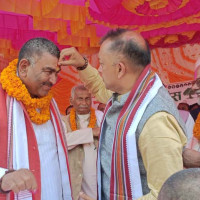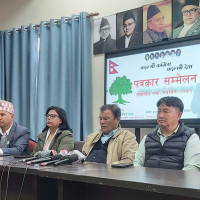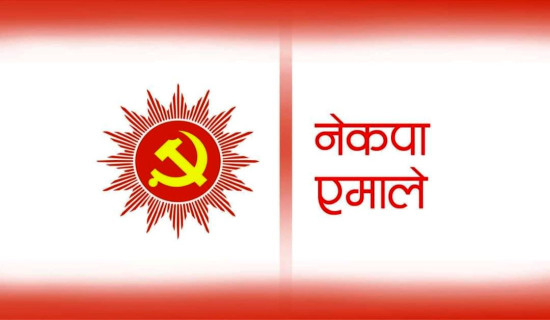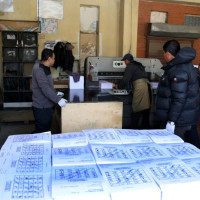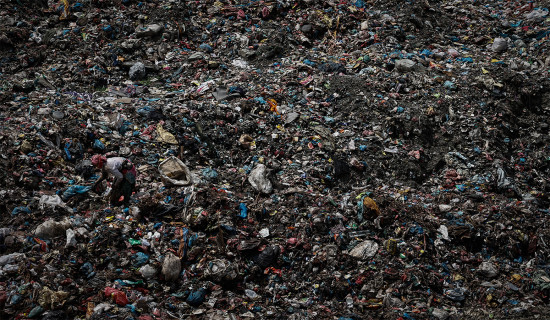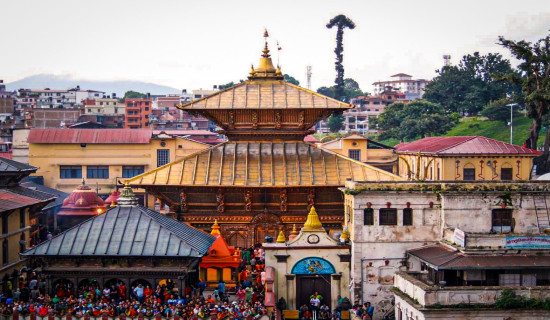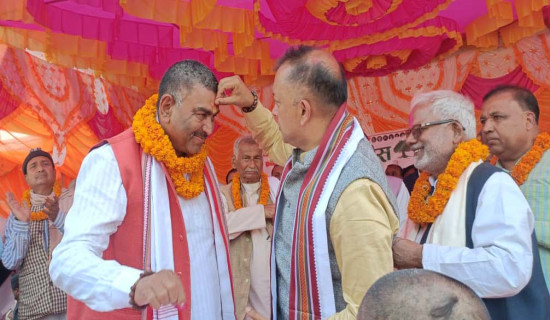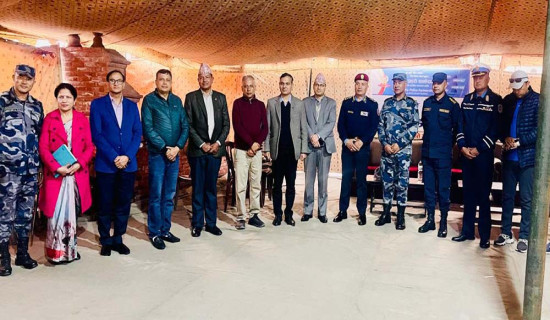- Sunday, 15 February 2026
Rao Zhongyi's Contribution to Sino-Indian Cultural Exchanges
Huazhong Tu &
Xinyu Liu
Two of the oldest civilizations in recorded human history are China and India. They both underwent protracted periods of historical upheaval and made significant contributions to global civilization. It is important to note, too, that Western invasions have occurred in both China and India in recent centuries, causing much misery for both nations. Specifically, modern China has gone through a protracted period of political and social upheaval, which has included changes to its social structure and values, the fight for national independence and sovereignty, and a reform of its political system. China's social and cultural growth accelerated during the modern era, which also marked the pinnacle of the blending of traditional and contemporary ideas. This period greatly affected Mr. Rao Zongyi, one of the masters of contemporary Chinese culture, who was born in 1917, in high respect. He is recognized as a master of Chinese nationalism and has been rated as "Rao in the South and Qian in the North" and "Rao in the South and Ji in the North" with Qian Zhongshu and Ji Xianlin. Rao Zongyi, who was raised in Chaoan, Guangdong Province, absorbed his family's lessons from a young age and eventually rose to prominence as a scholar by independent study. He spent most of his early years gathering local histories and documents in order to learn more about the history and culture of the area. And later, he expanded his field of academic research and began to dabble in the traffic of the Four Descendants and excavated documents. In his prime he expanded his research from Chinese history to India, West Asia and even the history of human civilisation. In his later years he focused on exploring the spiritual history of China and exploring the unique ideas and values of Chinese culture.
Mr. Rao Zongyi was a man of vision that saw beyond
national lines in addition to having a thorough understanding of traditional
Chinese culture. He was described as someone who "broke the law but not
against the law." His scholarly accomplishments have significantly aided
in fostering international understanding and cultural exchanges. Mr. Rao Zongyi
dedicated a considerable lot of time and effort to studying Indian culture,
studying Buddhism, Indian literature, history, and philosophy, as well as art
and sculpture. He has investigated the connections and reciprocal impacts
between Indian and Chinese civilizations, illuminating their similarities and
emphasizing the benefits of interaction
For starters, Mr. Rao Zongyi 's studies of Indian
literature, history, philosophy, and Buddhism gave Chinese and Indian
researchers access to a wealth of scholarly materials and a solid theoretical
framework. Vasant Vasudev
Paranjape, an Indian scholar of the orthodox Brahmin tradition, led him to
reexamine Chinese classics and become proficient in Indian Sanskrit. A
Collection of Essays on the History of Sino-Indian Cultural Relations - An
Introduction to Siddhantaism, a scholarly classic, was based on his observation
that Indian linguistic phonetics had a centuries-long influence on Chinese
literature following Hatamarash. He also authored The Theory of Orthodoxy in
Chinese History and conducted a comparison between traditional Chinese and
Indian cultures. In addition, Mr. Rao Zongyi was an expert in the study of
difficult topics like Buddhism and the background of earlier cultural contacts
between China and India. Under the guidance of the distinguished Indian Scholar
Vasant Vasudev Paranjape, he researched and translated the ancient Indian
Sanskrit Brahmanical classic, the Rig Veda.
Second, Mr. Rao Zongyi made a significant contribution
to Sino-Indian cultural relations through his study of art and sculpture. He
investigated the parallels and discrepancies between Chinese and Indian
painting and sculpture, as well as the traits and evolution of Indian art. His
research's findings have aided in the development of cooperation and artistic exchanges between the
Chinese and Indian art circles by serving as a source of inspiration and
knowledge.
Furthermore, Mr. Rao Zongyi actively engaged in
cultural contacts between China and India in addition to his scholarly work. He
traveled to the north and south of India at the invitation of the Banda
Institute of Oriental Studies in India to do study on Sino-Indian ties at the
Centre for Sanskrit Studies in India.
Mr. Rao Zongyi has made significant contributions to
humanistic exchanges between China and India through his research and cultural
exchange activities in the areas of Indian literature, history and philosophy,
Buddhism, painting, and sculpture. He has also given Chinese and Indian
scholars common fields of study and topics to discuss. In a cross-cultural
setting, Mr. Rao Zongyi's viewpoints and ideas are universal and offer
insightful advice and direction for cultural exchanges between China and India.
To begin with, tolerance and respect for one another
must be the cornerstones of Sino-Indian cultural interchange. Mr. Rao Zongyi
demonstrates a tolerant attitude toward diverse civilizations by studying
Indian culture and contrasting it with conventional Chinese culture.
Respecting, comprehending, and accepting cultural differences is a necessity
for Sino-Indian cultural exchanges. Exchanges and debates should also be
conducted with an open mind. Furthermore, since art is a direct form of expression that transcends both linguistic and cultural
boundaries, its significance in cultural interchange must be emphasized. China
and India can promote their different art forms and cultural traits through art
exhibitions, festivals, and other events, which will also help the two peoples
better appreciate and respect one another's cultures.
Moreover, careful
research and open communication are essential for successful cross-cultural
interactions between China and India. We can only fully appreciate and
appreciate one other's cultures if we thoroughly examine every facet of them.
In order to improve understanding between the peoples of China and India,
assist dispel misconceptions and bias, and encourage the growth of amicable and
peaceful relations, active communication and interaction are crucial.
Research and contributions by Mr. Rao Zongyi have been
very helpful in guiding China-Indian cultural exchanges. China and India are
two of the world's oldest civilizations, with comparable historical realities
and experiences. Respect, tolerance, thorough investigation, and engaged
conversation should be the cornerstones of cultural relations between China and
India. increase mutual understanding and empathy for one another's cultures,
create win-win situations and cultural mutual appreciation, and lay a strong
basis for the growth of China-Indian relations and inter-people contact. China
and India are of the opinion that by working together, we can foster greater
cultural exchanges, strengthen our friendship and cooperation, and establish
tighter ties between the two nations.
(Huazhong
Tu & Xinyu Liu, Scholars, Southwest University of Political Science and Law,
P. R. China)




